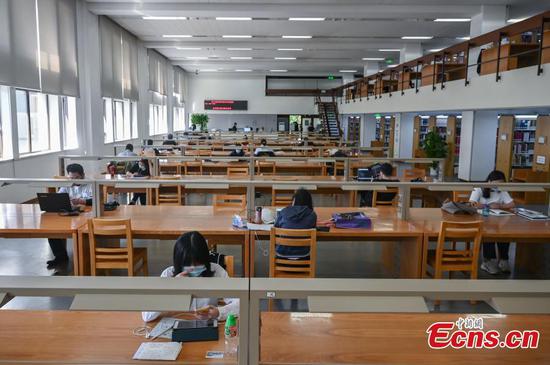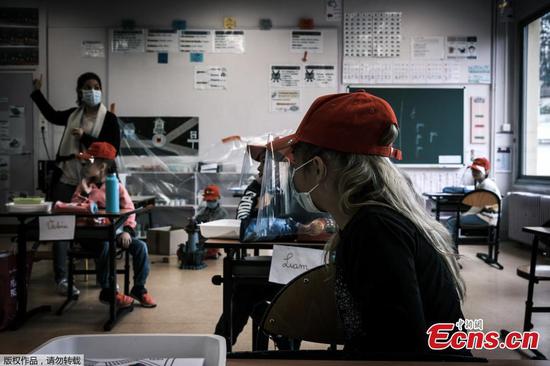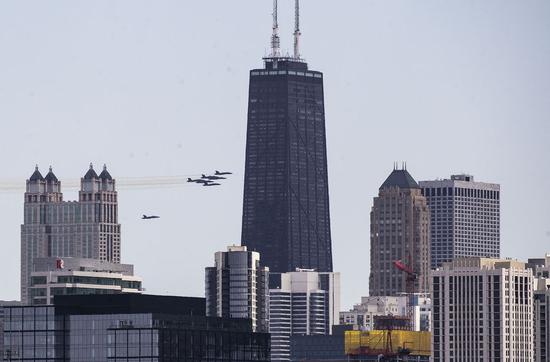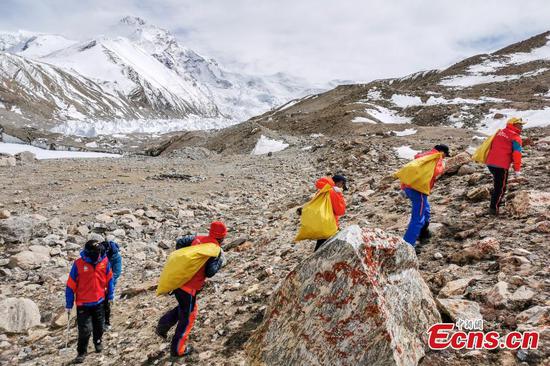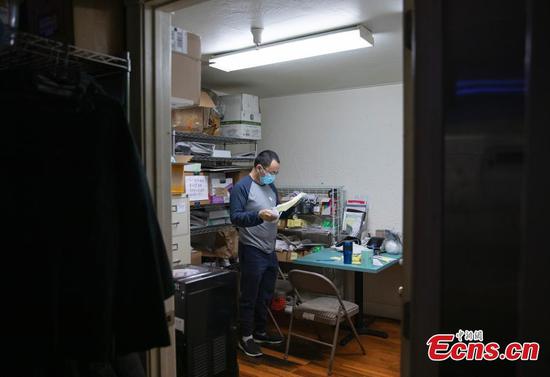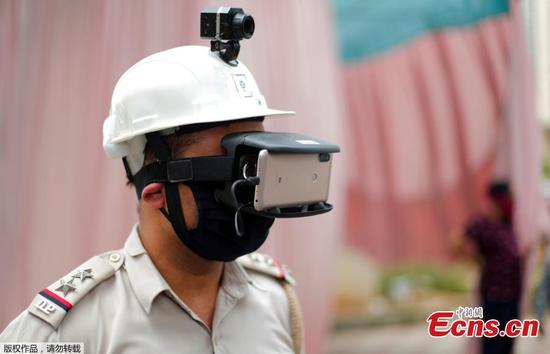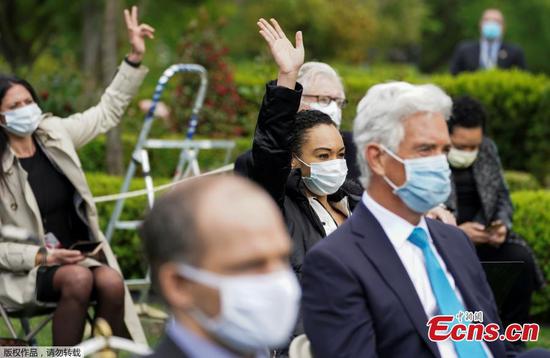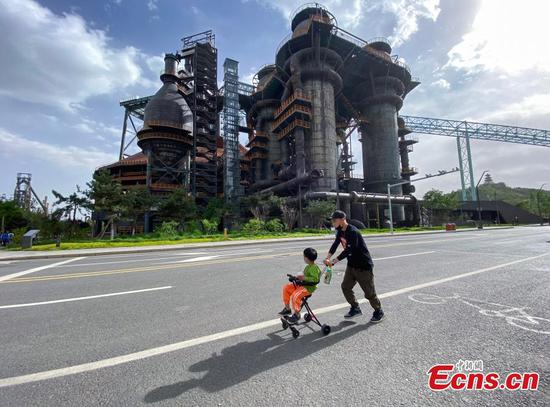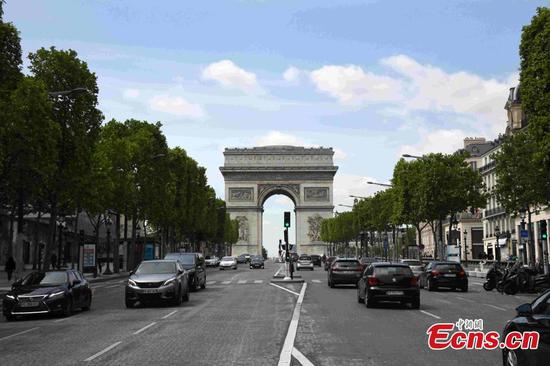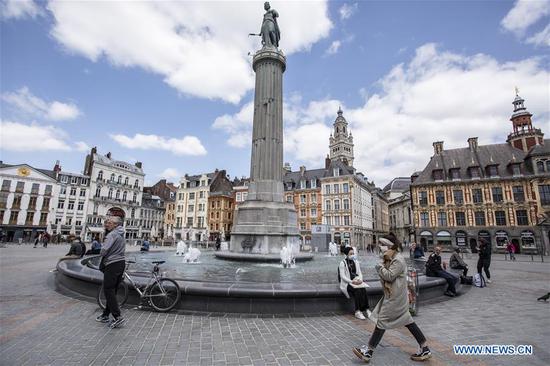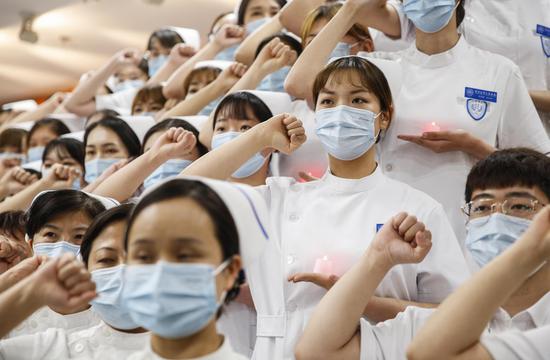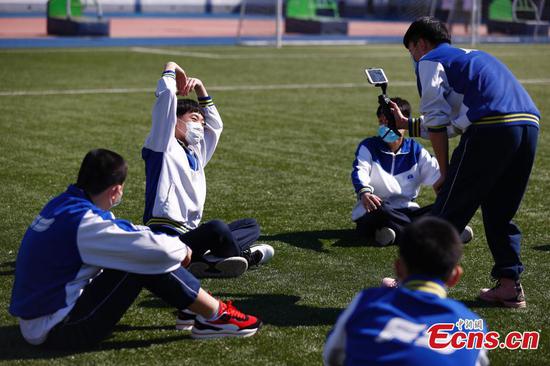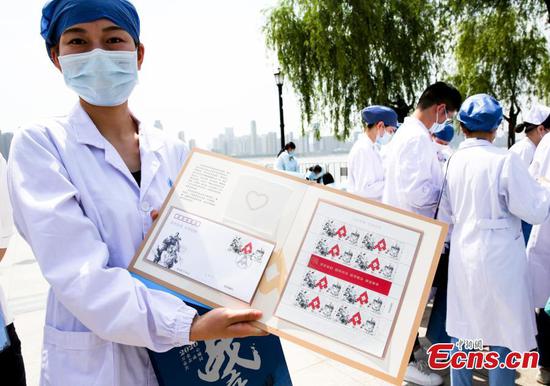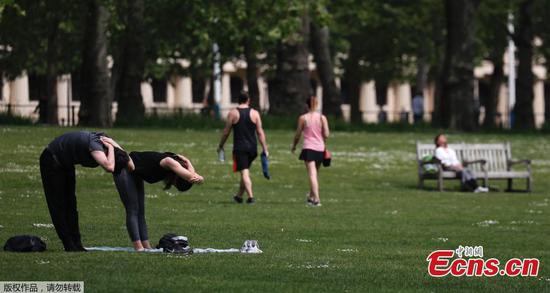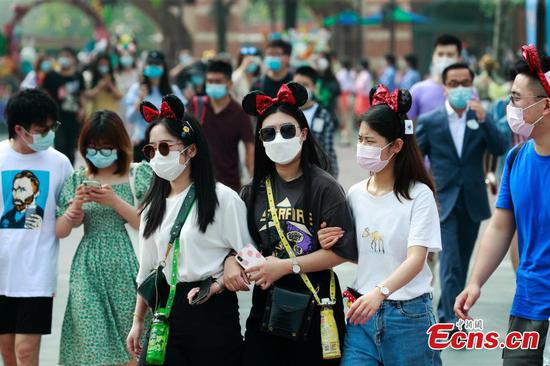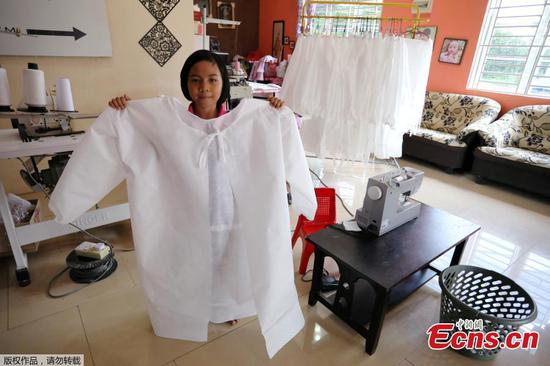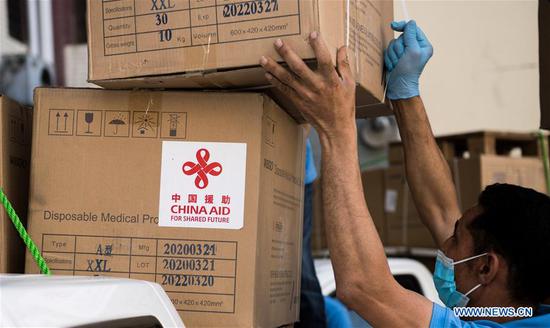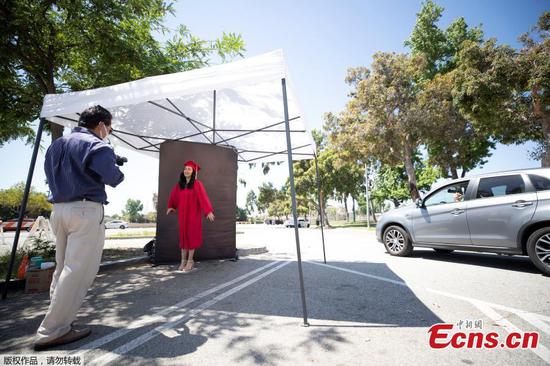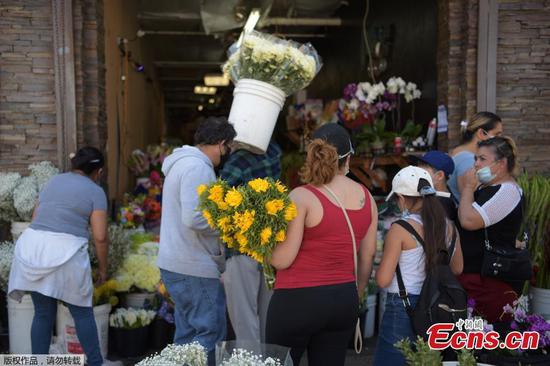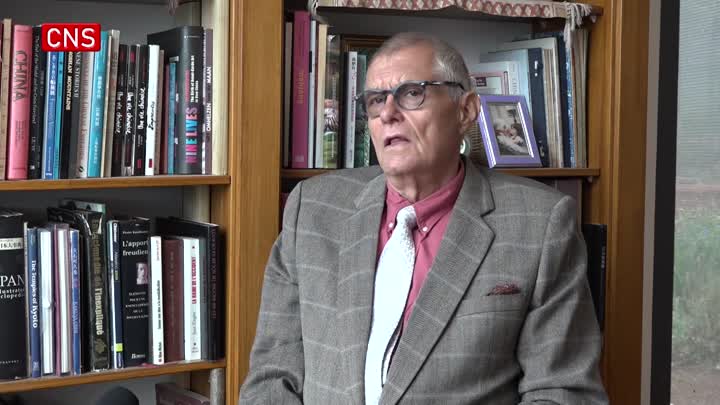Jamie Fiocco, owner of Flyleaf Books, a bookstore in Chapel Hill, North Carolina, said even though the state has started to reopen the economy, her store and many others are taking it slowly.
"We do not want to allow the virus to affect our staff or our customers and community," Fiocco told Xinhua in an email interview. Her store has been closed to the public since March 16, and for now it will remain so, while offering local delivery, curbside pickup and mailing out purchases.
North Carolina entered Phase One of the state's three-part plan to reopen its economy on Friday, joining dozens of U.S. states that have recently started to allow certain nonessential businesses to operate, when a nationwide significant decline in COVID-19 infections and deaths is yet to come.
Meanwhile, small retailers like Flyleaf have been grappling with an uncertain future, fearing a second wave of infection, along with a shrinking income amid the COVID-19 outbreak, would dampen demand and suppress sales.
CONCERN OVER SECOND WAVE
Public health experts and economists have warned that moving too fast might risk a second wave of infection, which could lead to grave health and economic consequences, even plunging the economy into a depression.
At a virtual Senate hearing on Tuesday, Anthony Fauci, the nation's top infectious disease expert, warned that the United States could see multiple outbreaks across the country and face more deaths if states and cities "prematurely open up" without the capability to respond effectively and efficiently.
"If we get a second wave, it will be a depression," Mark Zandi, chief economist of Moody's Analytics, told CNBC in a recent interview. "We may not shut down again, but certainly it will scare people and spook people and weigh on the economy."
Despite the strong push from the Trump administration to get the U.S. economy going again, the American public is still divided over state efforts to ease social distancing restrictions and restart the economy.
"There is a big concern about a second wave," said Fiocco, also president of the American Booksellers Association, which represents some 2,000 independent brick-and-mortar booksellers nationwide.
Fiocco said she had to lay off half of the staff, from 15 to seven, amid the COVID-19 shutdown, and has recently offered the jobs back for three people, but they have declined due to fears about the virus.
"The fourth quarter of 2020 is very uncertain," she said. "We hope there will be normal operations by end of 2021."
National Retail Federation Chief Economist Jack Kleinhenz said in a recent statement that "with some stores starting to reopen as governors lift stay-at-home orders across the country, economic recovery from the coronavirus pandemic is likely to come gradually and may vary by location."
"Getting back to work or shopping in a pre-virus manner is difficult to predict at this time, with households likely to tiptoe back in rather than making an immediate return to the lives they experienced before," Kleinhenz said.
Zhu Simin, who launched Ecru Emissary, an online store that mainly sells Chinese designer brands, told Xinhua in a phone interview that her only hope for her six-person startup this year is to survive.
"I'm worried that people might just buy fewer clothes because they have less money during the outbreak," Zhu said, voicing her concern that reopening the economy doesn't necessarily lead to higher sales.
The Maryland-based company has seen growth in the past three years and had planed to open its first physical store in Manhattan, New York later this year.
"That plan obviously has to be delayed for at least a year," she said.
ADAPTING TO PANDEMIC
As many companies adopt work-from-home policies, schools close down, and more people stay home, there have been some changes in consumption patterns, prompting businesses to adjust their strategies to the evolving situation.
"Puzzles have been in high demand. We've sold hundreds of puzzles along with books," Fiocco said, adding that "Folks want to read thrillers or nonfiction that deal with pandemics and worldwide shutdowns."
"The other trend is to read happy stories that entertain," the bookseller added. "We have sold a lot of children's and middle grade books as children are out of school as well."
Independent bookstores traditionally rely on the physical presence of customers, but under the current circumstances, they have to boost online sales.
"We will make a big push for folks to order online and pickup rather than having a lot of people in the store," Fiocco said.
She said her bookstore has seen a 14-percent decrease in sales since the start of the year, and costs have been much higher than before, with rising shipping costs, delivery person pay and packaging materials.
"Customers are being very supportive and loyal," Fiocco said, noting that 75 percent of customers have chosen to pay the four-U.S.-dollar shipping cost even though she offers one-dollar shipping for orders over 25 dollars.
"While we were already transitioning to online commerce, the pandemic will lead to a step change for both consumers and businesses," David Reibstein, a marketing professor from Wharton School of the University of Pennsylvania, told Xinhua via email.
"If they weren't on line they certainly have moved in that direction," Reibstein said. "Many businesses that have failed to make the transition will have fallen by the wayside while other businesses have emerged if not thrived."
For her startup, Zhu has recently seen a silver lining. After a roughly 15-percent decline in sales in March, a rebound started in late April. During the first 10 days of May, there was even a year-on-year increase in sales.
Despite the promising numbers, Zhu is considering expanding product categories, as well as downsizing inventory, so as to reduce risks and better manage cash flow pressures.
"We plan to start selling pajamas next month, and will introduce more household accessories as many people are still staying at home," Zhu said, planning to introduce more tops in the next few months, as more people are buying tops than pants.
Zhu's observation reflects broader industrial trends. Online sales of pajamas soared 143 percent in April month-on-month, while sales of pants fell 13 percent, according to data from Adobe Analytics, which tracks 80 percent of online transactions at 100 of the largest U.S. retailers in the United States.
"I hope things will improve as soon as possible, but the recovery is not likely to be fast," Zhu said. "It's going to be a tough year."









